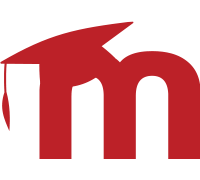Can Your University Remain Competitive?
No organisation in any industry can remain unaffected by constant and rapid changes in the external business environment. The education sector is no exception. From pandemics and geopolitics to growing demographic shifts and new user (student) expectations, if universities do not take a “future-back” approach to their success planning, their competitiveness and survival are at risk.
While change management is never an easy exercise, especially for larger, more complex organisations, remaining a traditionalist is not an option! Yes, we all had to put some band aids in place when COVID-19 forced us to work and to learn from home almost overnight, but most of these band aid solutions won’t last and we need to put some fundamental changes in place to ensure we can attract and retain the best talent and enough market demand to satisfy the bottom line. Very clear and distinctive Employee and Client (student) Value Propositions (EVP and CVP) are a must; and then of course you need the systems, including good learning management systems and processes in place to deliver on those promises.
CX is for everyone and it’s everything!
Student experience, from their open day visit to daily coursework, is everything! Gen Zs are not only spoiled for choice but they are true “digital natives”. They expect connectivity, flexibility and innovative technologies that enable that. As much as some personalities prefer on-campus learning, and many universities did their best to bring it back to satisfy the social aspect of the entire experience, it is still very much a hybrid world out there, and it’s one thing that will never change. We simply have more and different demands to satisfy.
Engagement and experience is key for both groups, those that prefer to be on campus and those who prefer to learn from home, when it comes to their overall satisfaction and success.
Another layer of complexity for higher education providers is the increasing demand for consistent, insightful and personalised communication from students. They want to be able to communicate with whoever they want – peers, educators and other support personnel – asynchronously and efficiently, to feel supported and engaged. This can be done only with the right technologies and trusted IT support in place.
It’s not just about the Gen Z either.
Education is a lifelong journey. And while some are still asking if education or work experience is more important, those at the top of their career ladders will tell you that it’s not that simple or linear. Maintaining relationships with alumni and offering various short and ‘executive education’ type courses is something that most competitive universities offer today in realising this.
“Experience might matter less,” state Betts and Rosemann, as they unpack the theory of 3 learning disorders. “Even worse, [experience] could become counter-productive when unlearning established practices becomes increasingly difficult.” The authors suggest continuous improvement to [user] experience and “health checks” on alumni well-being as some of the solutions to maintaining growth in the current global learning economy, as well as addressing knowledge gaps with a very personalised approach.
We agree that as education models evolve in response to external environments (Political, Economic, Social, Technological and Environmental), this puts increasing pressure on existing educational organisations to quickly adapt and rethink their business strategies. It also opens up opportunities for new competitors – ed-tech start ups and various niche providers – which increases the pressure to evolve even further.
Maintain your brand and your bottom line with the right technology.
What will add to your overall user satisfaction (be it employees or new, existing or past students)? Are you able to remain up to date with the ever increasing variety of user demands while maintaining your organisation’s distinctive culture , brand equity and ultimately your bottom line? In addressing these questions and ongoing changes, the right technology is your best friend.
There are various options out there for Learning Management Systems (LMS) and student (client) relationship management platforms (CRM) that exist but the challenge is not in just deciding which ones are right for you but whether you have the right infrastructure in place to support the ongoing maintenance and safety of these systems.
The risks of online privacy and security were the key priorities for organisations even prior to the work-from-home and learn-from-home era, but have now become more so. 24/7 support from ‘real people’ in all timezones is critical for your peace of mind and your overall CX. You need to know that you’re in the hands of a trusted advisor who will keep up to date with back-ups, software updates and pick up on any issues as they arise.
What to look for in an ed-tech solution?
- Safety and security – first and foremost!
- Ease of use / navigation
- Access to relevant information when users need it
- Connectivity and collaboration – access to relevant people when and where needed
- Personalisation of your learning management system / alignment with your organisation’s strategy
- Integration with your current systems and processes as well as various device types
- Flexibility
- Trusted advice and partnerships with your tech providers
- Transparency
- Guarantee of support for your continuous improvements and innovation
Why Open Source?
With the freedom to build upon languages that are reliable and guarantee continuity and flexibility, it is difficult to argue why not. More importantly, security is one of the key benefits of open source software – it is peer-reviewed and has a large base of providers who can identify and fix security flaws at any time. In addition, with a tight labour market you can use your own internal resources, engage external experts or use a mix of both. Open Source gives you control, certainty and a flexibility that drives value in your digital projects. Our open source learning management systems offer all that.
What you can do to help your organisation remain competitive:
- Take a leadership approach – contribute to your organisations success strategy, be an advocate for latest market trends and long-term solutions (not band aids!)
- Remember, the S-curve theory of business growth and always think “future-back” in order to reinvent the ‘old ways’ of doing things
- Look at your organisation’s vision, values and goals – are these still valid and do you have the right systems, processes and technology in place to maintain those
- Remain curious: put yourself in your stakeholder (employee / student) shoes; have a conversation with them and ask them about their current needs, jobs, pains and possible solutions
- Consult with a trusted LMS advisor (potential tech solutions provider)
- Gather your teams input and obtain support from like-minded future-focused individuals
- Propose a business case → Contribute to your teams success → Win!
What can your university do to remain competitive?


